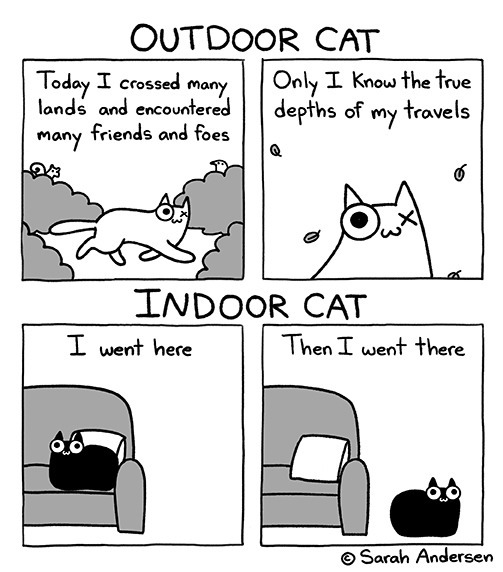this post was submitted on 27 Jan 2024
1537 points (96.8% liked)
Comic Strips
12543 readers
3430 users here now
Comic Strips is a community for those who love comic stories.
The rules are simple:
- The post can be a single image, an image gallery, or a link to a specific comic hosted on another site (the author's website, for instance).
- The comic must be a complete story.
- If it is an external link, it must be to a specific story, not to the root of the site.
- You may post comics from others or your own.
- If you are posting a comic of your own, a maximum of one per week is allowed (I know, your comics are great, but this rule helps avoid spam).
- The comic can be in any language, but if it's not in English, OP must include an English translation in the post's 'body' field (note: you don't need to select a specific language when posting a comic).
- Politeness.
- Adult content is not allowed. This community aims to be fun for people of all ages.
Web of links
- !linuxmemes@lemmy.world: "I use Arch btw"
- !memes@lemmy.world: memes (you don't say!)
founded 1 year ago
MODERATORS
you are viewing a single comment's thread
view the rest of the comments
view the rest of the comments

The idea that nature was in some sort of balance before humans came along is a common misconception. Most ecosystems are dynamic, and change over time. What we are doing is accelerating that change to a dangerous level.
This might seem like an academic distinction, but many conservationists have caused more harm than good by trying to 'freeze' ecosystems at a state that existed at some fixed point in the past. I believe it was George Monbiot who pointed out that the margins of many British roads had higher plant and insect diversity than many 'protected' areas.
Friend, cool it with the pedagogy. If one understands the idea of ecosystems at multiple scales, it follows implicitly that one understands the systems are inherently dynamic.
The point still stands: we've got to understand the environs we've rapidly destabilized and do something to limit our negative influence. Ergo: keeping stupid cats indoors helps the stressed systems by reducing the load caused by a bored apex predator.
Oops I forgot my point in saying all that, which was that if cats have become naturalised to your local ecosystem, then removing them could make things worse. (And by the way, cats are not apex predators.)
By the way, actually, an apex is also known as the summit or peak of a curve, which domestic cats can generally be considered as they are rarely (though not never) predated upon. Wasn't clear that you understood that, but now you do!
Cats are not apex predators. They have predators in both their natural range and some of their introduced ranges. Cats bury their poop (probably) so they don't broadcast their presence to any nearby predators.
I'm glad you enjoy your opinion. It's not correct, but enjoy anyway!
Or, see the wildfires in North America, caused largely by prevention of natural wildfires, resulting in a century of surplus of dead organic matter and primed with climate change-induced drought.